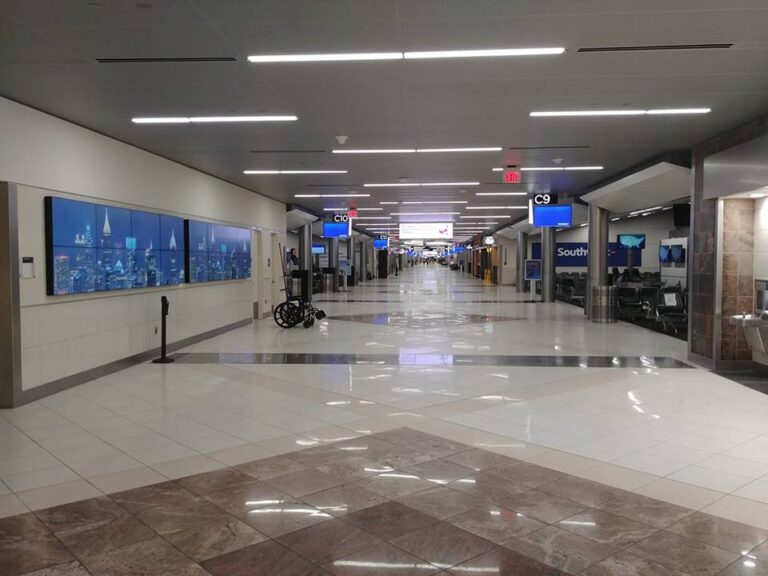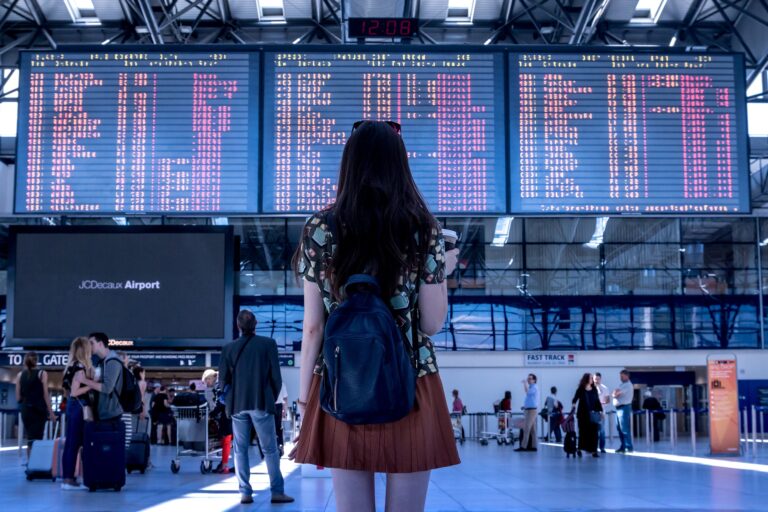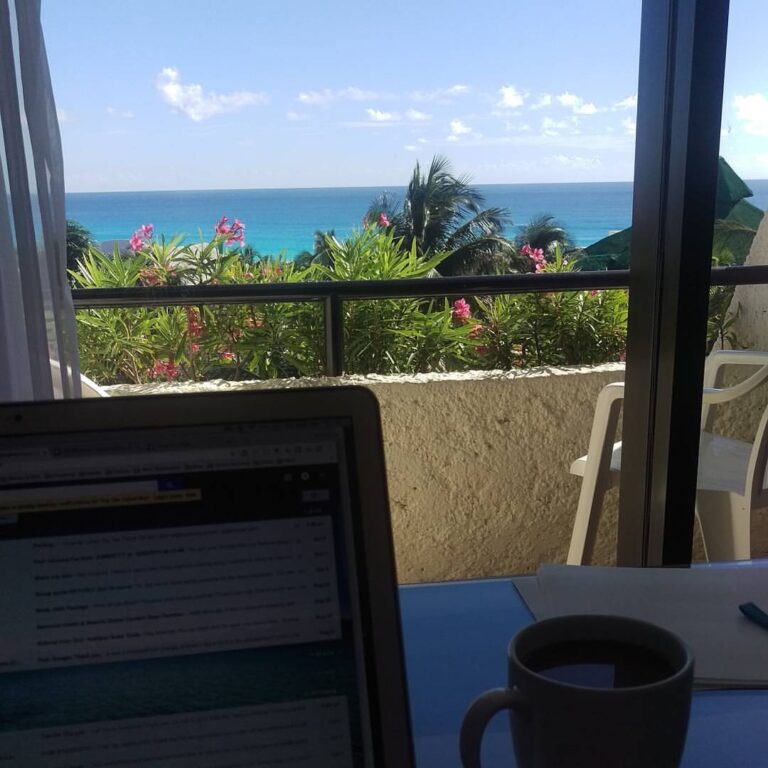Read Customs Paperwork and Be Honest!
Many countries will have you fill out paperwork when you enter the country to state that you are not bringing in something that could be a threat to their country. Most of this focuses on environmental factors, but it also usually includes things like explosives and large amounts of money. The category that usually confuses people is food and agricultural goods.
A lot of us travel with food. A little bag of trail mix or a cliff bar in your backpack is no big deal, right?
Many airports have dogs that aren’t sniffing for drugs– they’re sniffing for food. I mean, ALL dogs sniff for food, but these dogs sniff for SPECIFIC food. They want to catch all the items that could bring harmful pests into their country. Fresh fruits and vegetables are never allowed. Many meats, such as pork, are banned. Nuts are often off-limits. These things can carry various pests, pathogens, and diseases that could devastate a country’s crop if they are introduced.
If you aren’t sure, throw it away or just declare it. The customs agent will tell you if it isn’t ok. You might have a minute or two of secondary screening, but you might get to keep your snack.
On two different occasions coming back from Mexico, I declared food when entering the US. One time it was leftover shrimp from the restaurant I’d gone to in the terminal while waiting for my plane. That was fine. The shrimp in Mexico comes from the same gulf that shrimp in Texas comes from. The second time it was chorizo from a sandwich. That time, my sandwich was confiscated and incinerated because pork has been known to cause problems.
Now, if I hadn’t declared the sandwich, I could have just lied and kept it. Chances are, it wouldn’t have done any harm. However, if the food-sniffing dog had caught me with something I didn’t declare, I could be looking at jail time. My advice is to always over-declare. If you aren’t sure, declare it. Checking “Yes” on one of those boxes doesn’t mean you can’t enter the country; it just means customs might ask you one or two follow-up questions.
Also, “agricultural product” means ANYTHING made from a natural good. Cotton, wooden items, alcohol, etc. If you’re leaving Jamaica with rum or the Dominican Republic with cigars, just declare them. They’re allowed to come into the country, but they do count as an “agricultural product” and should be declared so the customs agent can ask the follow-up question.
The View from Your Hotel Room is Not Important
Why are you in your room? There are places to explore! Things to do! If your view isn’t great, don’t worry about it! Take it as an opportunity to spend more time on the terraces with views or bars with local art. As long as it’s clean and has a comfortable bed, don’t let your vacation be ruined by a bad view in the room you’re just supposed to sleep in.
I see a lot of people spend huge amounts of time in their hotel rooms when they could be spending time exploring and experiencing. Don’t let yourself fall into this trap. If you’re tired, stop at a café for an hour and people-watch while drinking a cup of coffee. You aren’t going to get these opportunities every day, so take advantage of them as much as you can while you’re there.
Don’t Go Ziplining
Many resort areas have a ziplining excursion. Often, they also have ATVing and horseback riding. These are the common ones in the Caribbean, but there are generic excursions everywhere. Unless you are using one of those modes of transportation to get to something exceptional and unique, don’t bother! You can zipline, ATV, and ride a horse anywhere. Use your time abroad to do something that’s special to that country. In Cancun, Mexico, for example, you could visit one of 20 different “parks” with a ton of activities! You can zipline, ATV, have a Mexican lunch OR… you could visit Chichén Itzá, one of the largest pyramids built on the Yucatan peninsula by the ancient Aztec civilization, and on the way home, swim in a cenote, one of the limestone sink holes that are unique to this area of the world and a once-in-a-lifetime experience. Neither of these can be found anywhere else and is much more enriching than a zipline.
Try All the Food
Just try it. Even those picky eaters out there, just try things one time. Especially if you’re at an all-inclusive, what do you have to lose? But even if you aren’t at an all-inclusive, try some of the local favorites. Maybe avoid the local delicacies like haggis and blaut (Google it), but definitely try fish and chips in England, bhan mi sandwich in Vietnam, and ceviche in Mexico. Street foods are often the best cuisine you’ll have in other countries and often the least expensive. You may find something you love; in the process, you’ll learn a ton about that country’s resources and culture. If you have an opportunity, do a food tour or a dine-around. These can be great ways to see the sites, learn the history, and have some amazing food.
Don’t Use the Safe
A lot of travel professionals will disagree with me on this one, and that’s fine. This is an opinion blog, and this is my opinion.
If you worked at a hotel and were looking to steal some valuables from tourists, where would you look?
The number of people who have access to your safe is quite high. Anyone on the security team, the management team, and quite a few other individuals can override the code on the safe. I had an instance with a hotel recently where five safes were “broken into,” and hundreds of dollars of goods and cash were stolen. Fortunately, the thieves left the passports, but what if they hadn’t?
So, what should you do instead? Obviously there a lot more people who have access to your room than have access to the safe.
I hide my valuables in my dirty laundry or in an interior pocket of my suitcase. If someone is up to no good, they aren’t going to dig through your stuff forever trying to find things. Chances are, they’ll break into the safe, flip through your belongings quickly, then give up and move on. If your valuables are either with you or even slightly hidden in the room, they’re pretty safe.
I also wouldn’t bother putting the “do not disturb” sign on your room. If someone is doing something illegal, they aren’t going to pay attention to your signage.
Housekeeping isn’t likely to steal your things. I’ve even had housekeepers find valuables after guests leave and turn them in to management to be returned to the guest. Every time they use their key to get into your room that is logged in the master system. Management can check the logs to know exactly who was in a room and when. It can sometimes be hard to narrow down who took something, but in general, it’s not housekeeping. It’s much more likely to be the mini-bar staff. Sort of being sarcastic with that… but only sort of.







